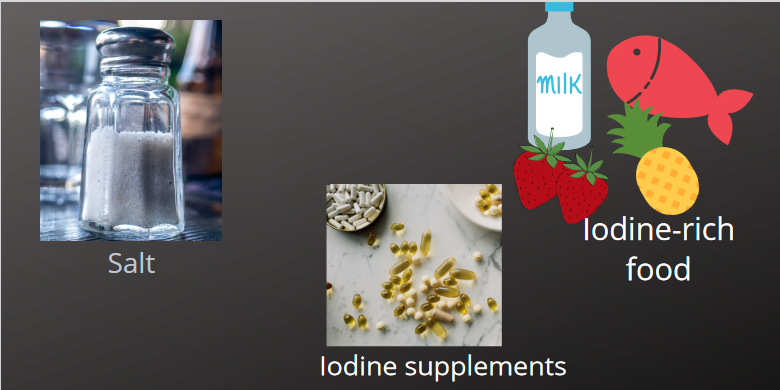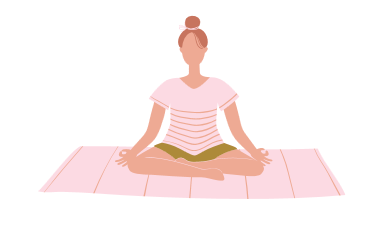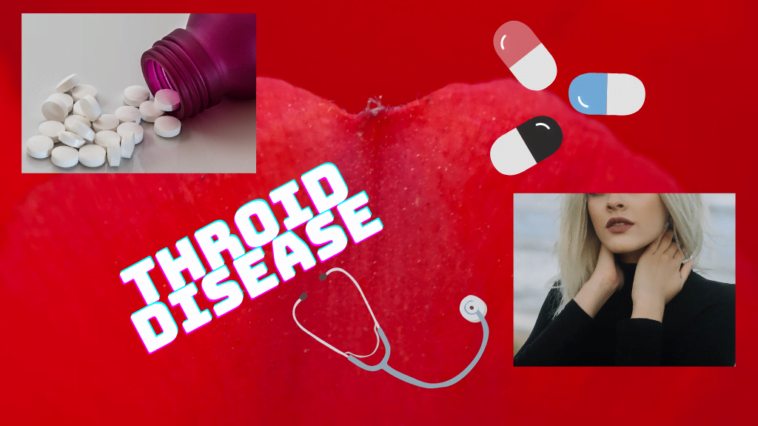The thyroid is the most essential and neglected gland in our body. In your neck, the thyroid gland produces hormones to manage crucial bodily functions like metabolizing food, regulating our sleep, weight management, mood swings, depression, and anxiety. Sometimes the thyroid can be over or underactive, leading to many different symptoms like irregular heartbeat, anxiety, fatigue, sweating, sleeping problems. The thyroid can not cure permanently; doctors can treat this with hormone therapy and some medications to correct a malfunctioning thyroid.
You can treat this by some natural remedies like yoga, healthy lifestyle. But for the most part, there isn’t much you can do on your own to treat your thyroid, so see your doctor if you suspect that you have a thyroid issue. You can take some steps in your everyday life to support your treatment and keep you healthy.
Method 1 of 2
Getting Medical care.
- Consult Your doctor if you suspect a thyroid problem: Make an appointment with your primary care physician if you have any typical symptoms of this diseases including weight changes, thinner hair, fatigue, and trouble sleeping, joint pain, muscle weakness, change in mood such as depression or anxiety, lumps or bulges in your throat which may cause swallowing or change in voice. Your doctor can run a test to determine a thyroid problem.
2. Take hormone medication for hypothyroidism: An under-active thyroid doesn’t produce enough thyroxin or T4. This condition is called hypothyroidism. Your doctor may prescribe to replace one’s hormones, which is not produced by thyroid.
• People with hypothyroidism prescribe by a T4 hormone known as Levothyroxine.
• You can also take synthetic T3 hormone known as liothyronine or Cytomel. Consume replacement hormone on an empty stomach: Your doctor should direct you to take a replacement hormone on an empty stomach. Your body will allow you to absorb properly on an empty stomach.
• Avoid eating food that contains too much fiber if you are taking thyroid medication.
• Ask your doctor for other options to treat hypothyroidism. Radioactive iodine is to take orally. It will shrink your thyroid and reduce symptoms over the month. Anti-thyroid medications will reduce the production of thyroid hormone in excess.
• Beta-blockers are can also prescribe. It does not affect directly but can manage some of the dangerous and unpleasant symptoms.
Method 2 of 3
Getting supplements for hypothyroidism.

- Get tested for vitamin and mineral deficiency: Thyroid problems may be linked to various vitamins and minerals. If you have any weakness, then your doctor will recommend some vitamin and mineral containing food in your diet.
2. Take mineral supplements daily as directed by the doctor: If you are suffering from hypothyroidism, consider taking mineral supplements such as selenium, zinc. These minerals help the thyroid to get nutrients to function correctly.o You can also take zinc supplements, 20-40 mg/day and, copper supplements 4-5 mg/day as directed by the doctor.o Hypothyroidism can also be associated with iodine deficiency so that people can get sufficient iodine from their diet as salt.
3. Take Vitamin supplements directed by the doctor: Your doctor may recommend you integrate vitamin source in your diet daily to maintain your health and keep your energy level up.o Fish oil in diet is good as it contains anti-oxidants. Take 2-3 grams of Omega-3 fish oil daily.o Take Vitamin B and vitamin D rich nutrients in your diet.
Method 3 of 3
Maintain your diet and lifestyle.

- Avoid food that can reduce thyroid function if you are hypothyroidism: You should avoid or limit your consumption of particular food that can affect your thyroid. It would be best to avoid eating vegetables like cabbage, broccoli, cauliflower, turnips, Brussels sprout that all can interfere with your thyroids ability to misfunction.
2. Eat food rich in iodine if you have an iodine deficiency: If you are iodine deficient, then you should integrate iodine-rich food into your meal such as seaweed, canned fish.
3. Cut out drinking alcohol or smoke tobacco products: These substances can harm your thyroid. They may also interact badly with medication used to treat its condition.

4. Reduce stress: Stress can cause thyroid problems to get worse. Try to use some techniques for managing stress, such as deep breathing exercises. Do deep breathing exercises with your eyes closed and relaxing body.o You can also do yoga poses that focus on relaxation, such as corpse posture.o Do Meditation, which is a great way to reduce stress.
5. Do Exercise each day: 30 minutes of exercise daily will help your body stay healthy and encourage thyroid function.o Moderate cardio exercise recommends to people who have a thyroid issue.o Go for a walk and jogging that can help to burn out your feeling of anxiety.
to know more about preventing tuberculosis, click here…



GIPHY App Key not set. Please check settings